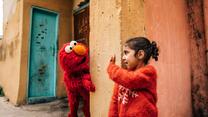Over 3.7 million Syrian children have been born into violence, poverty and displacement since the brutal war in Syria began over six years ago. Conflict and displacement dismantle social services, economic systems and family units with profound effects on the wellbeing of caregivers. Under these conditions, too many children lack stable, nurturing and enriching environments – including frequent interactions with caregivers that promote learning, and development. This case study provides a look at the process of adapting and piloting Vroom for Syrian refugee parents and families. Vroom empowers parents and caregivers of young children to turn everyday moments into brain-building moments. While group-based parenting programs have been shown to be effective in a range of low-resource settings, such interventions are costly and logistically challenging in large-scale humanitarian crises where populations are dispersed across a range of contexts.
Mobile technology and connectivity have become increasingly accessible, opening the door to new opportunities to help parents improve brain development right in their homes, and everyday lives. Vroom takes early brain science out of the lab and into the hands of parents in the form of easy, fun tips that layer onto existing routines like meal time, bathtime and time on the go. Vroom content is designed to be low-cost and scalable- harnessing the power of mobile technology through the Daily Vroom mobile application. To maximize the reach and impact of existing parenting programs, the International Rescue Committee’s Early Childhood Development team, together with a Design Lead from the Airbel Center, IRC’s research and development lab, adapted and tested Vroom tips and delivery channels with Syrian refugees in Jordan and Lebanon. Vroom was designed to capitalize on daily moments that occur in the lives of busy, low-income parents in the United States.
While Syrian refugee parents living in the Middle East face different daily environments and routines, they face a similar overall challenge: the struggle to find time to spend with children when facing pressure to provide for their families. This report is intended for practitioners, policymakers, donors and community members, who may use our key findings and recommendations to inform future adaptations and leverage existing media platforms to deliver critical content to improve nurturing care.



